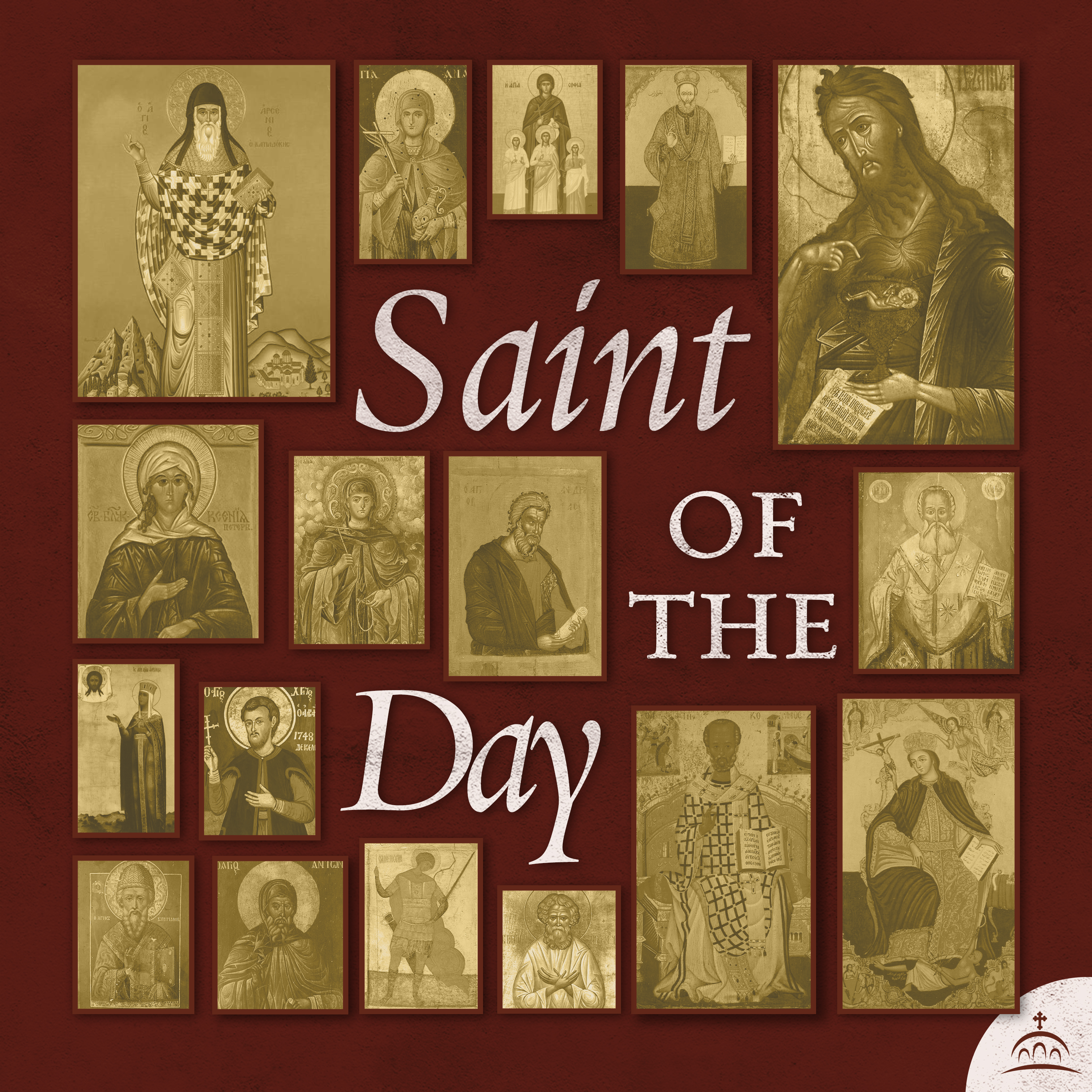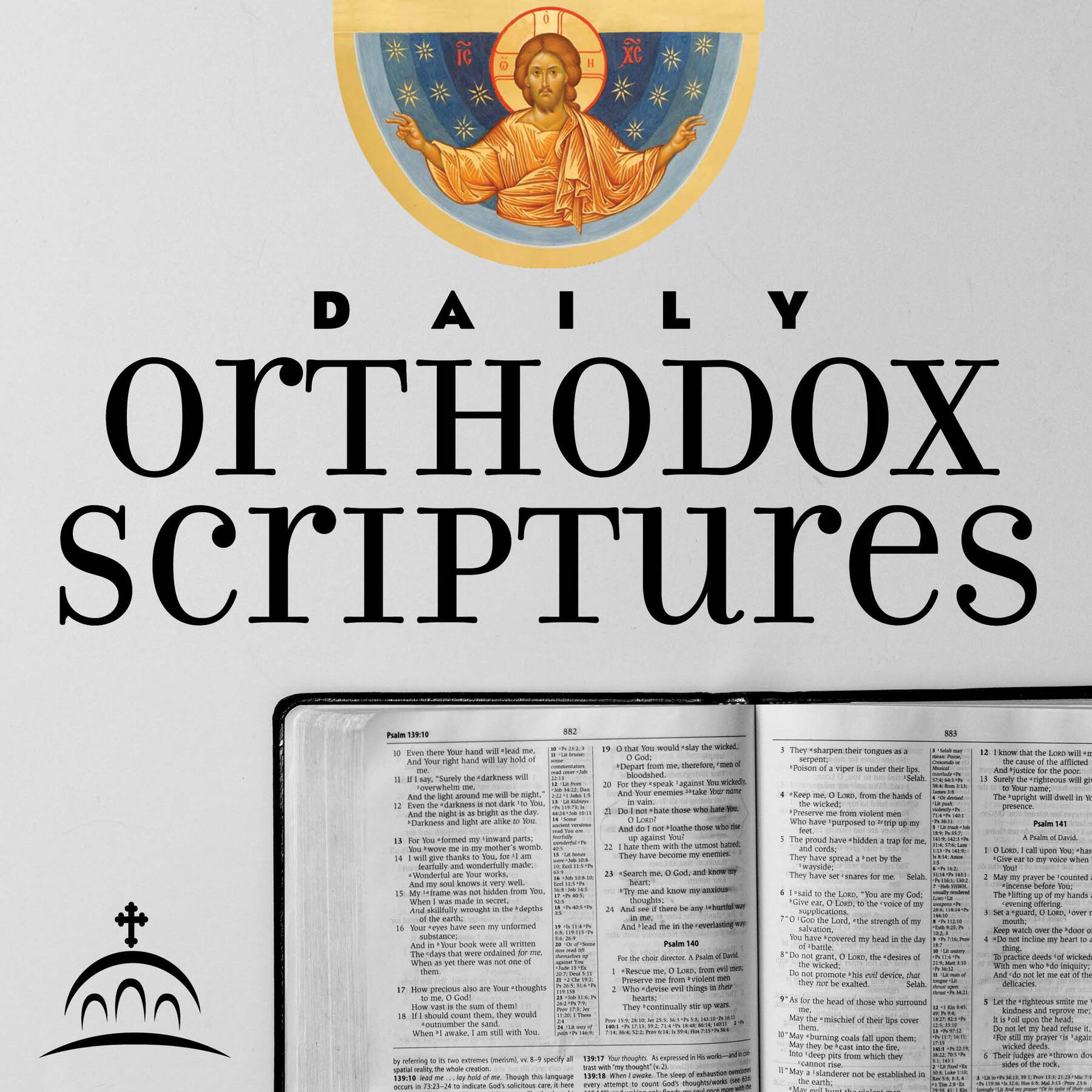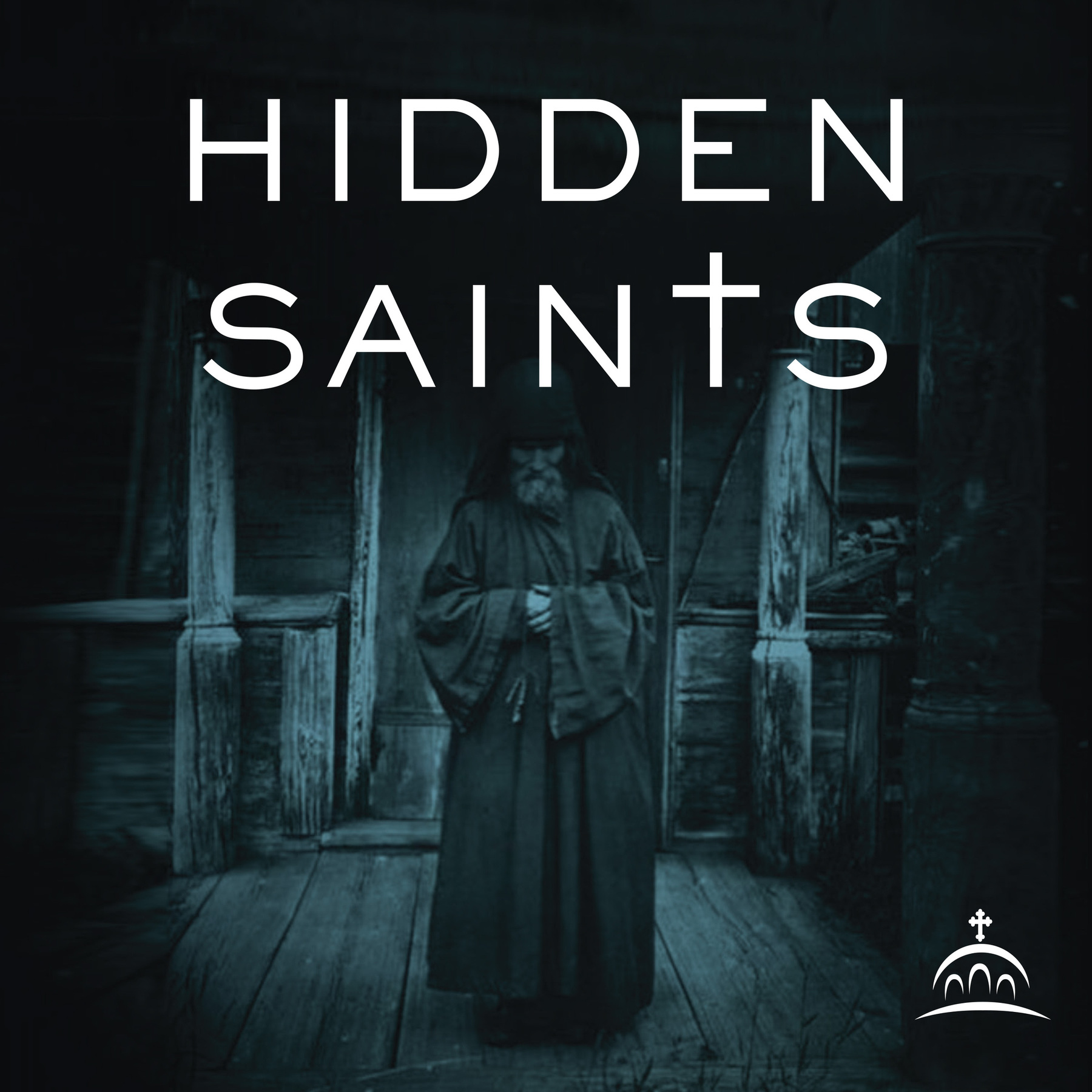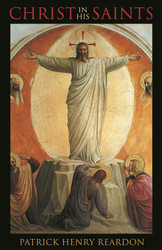
Saint of the Day
Daily Orthodox Saints
The Saint of the Day briefly tells the story of one of our venerable Saints we are commemorating for each day. It is heard eight times daily Monday—Friday, and is also available as a podcast. Our reader is a professional actor and an ordained Deacon in the Orthodox Church, Dn. Jerome Atherholt. Our source is www.abbamoses.com.
Support podcasts like this and more!
Donate NowSaturday, August 31, 2024
Hieromartyr Cyprian, bishop of Carthage (258)
He was born around 190 to pagan parents in North Africa. Before baptism he was distinguished in Carthage as a teacher of philosophy and rhetoric. He came to faith in Christ and was baptized at a young age; as soon as he became a Christian he abandoned his prestigious teacher's position, sold his many possessions and gave all his wealth to the poor. He was ordained presbyter in 247, Bishop of Carthage in 248. He was known for his gentleness and paternal care for his flock, combined with firm opposition to heretics. His extensive writings still guide the Church today. For his confession of Christ, he was beheaded under the Emperor Valerian on September 14; since that is the date of the Exaltation of the Cross, his feast is kept today. At the time of his execution he left twenty-five gold pieces (a huge sum) for the executioner who beheaded him.
Friday, August 30, 2024
Sts Alexander (340), John (595), and Paul the New (784), patriarchs of Constantinople
St Alexander took part in the First Ecumenical Council as delegate of Patriarch Metrophanes, who was too frail to attend; and succeeded Metrophanes on the Patriarchal throne. By his prayer to God that the Church might be spared the schemings of Arius, Arius was struck dead. St John is, by one account, St John the Faster (Sept. 2), who reposed in 595; by another, St John Scholasticus (Feb. 21), who reposed in 577. St Paul was Patriarch for five years, then renounced the Patriarchal throne to take the Great Schema.
Thursday, August 29, 2024
Our Holy Mother Theodora of Salonica (879)
"A wealthy and devout woman, she lived on the island of Aegina, but, when the Arabs over-ran the island, she moved to Salonica. There, she gave her only daughter to a monastery, where she received the monastic name Theopista. Her husband Theodorinus died very soon, and then Theodora became a nun. She was a great ascetic. She often heard angelic singing, and would say to her sisters: 'Don't you hear how wonderfully the angels are singing in heavenly light?' She entered into rest in 879, and a healing myrrh flowed from her body, which gave healing to many.
Wednesday, August 28, 2024
St Moses of Ethiopia (400)
He is also called Moses the Black. He was a slave, but was cast out by his master due to his evil life. He then became the leader of a murderous band of robbers in Egypt. He came to repentance and took up monastic life in the desert under St Isidore of Sketis. For many years he struggled tirelessly, through prayer, fasting and vigils, with lustful and violent thoughts; he was finally freed of them through the prayers of St Isidore. He was revered by all the brethren for his ascetical life, his wisdom, and his deep humility. Once a brother committed some sin and the monks gathered to judge him. Moses at first refused to go at all, but when they insisted, he filled an old, leaky basket with sand and carried it into the assembly on his back. When the brethren asked him what his action meant, he said "My sins run out behind me, and I do not even see them, and I have come to judge my brother." The monk was forgiven. In time the fame of this humblest of monks spread so far that kings and bishops traveled into the desert to seek his wisdom and his blessing. In his old age, he was warned that a band of brigands was coming to attack the Skete. He refused to leave saying, "It is written: he who lives by the sword shall die by the sword." So, mindful that he had slain others by the sword, he willingly awaited his own murder. Six other monks who remained with him were also slain.
Tuesday, August 27, 2024
Our Holy Father Poemen (Pimen) the Great (450)
"He was an Egyptian by birth and a great Egyptian ascetic. As a boy, he visited various spiritual teachers and gathered proven experience as a bee gathers honey from flowers. Pimen once begged the elder Paul to take him to St Païsius. Seeing him, Païsius said: 'This child will save many; the hand of God is on him.' In time, Pimen became a monk and drew two of his brothers to monasticism. Their mother once came to see her sons, but Pimen would not allow her in, asking through the door: 'Which do you want more: to see us here and now, or in the other world in eternity?' Their mother went away joy-fully, saying: 'If I will see you for certain there, I don't need to see you here.' In the monastery of these three brothers, governed by the eldest, Abba Anoub, the rule was as follows: at night, four hours were passed in manual work, four hours in sleep and four in reading the Psalter. The day was passed, from morning to noon, in alternate work and prayer, from mid-day to Vespers in reading and after Vespers they prepared their meal, the only one in the twenty--four hours, and this usually of some sort of cabbage. Pimen himself said about their life: 'We ate what was to hand. No-one ever said: "Give me something else", or "I won't eat that". In that way, we spent our whole life in silence and peace.' He lived in the fifth century, and entered peacefully into rest in great old age." (Prologue) His name means "shepherd". Many of his words can be found in the Sayings of the Desert Fathers.
 Dn. Jerome Atherholt
Dn. Jerome Atherholt






